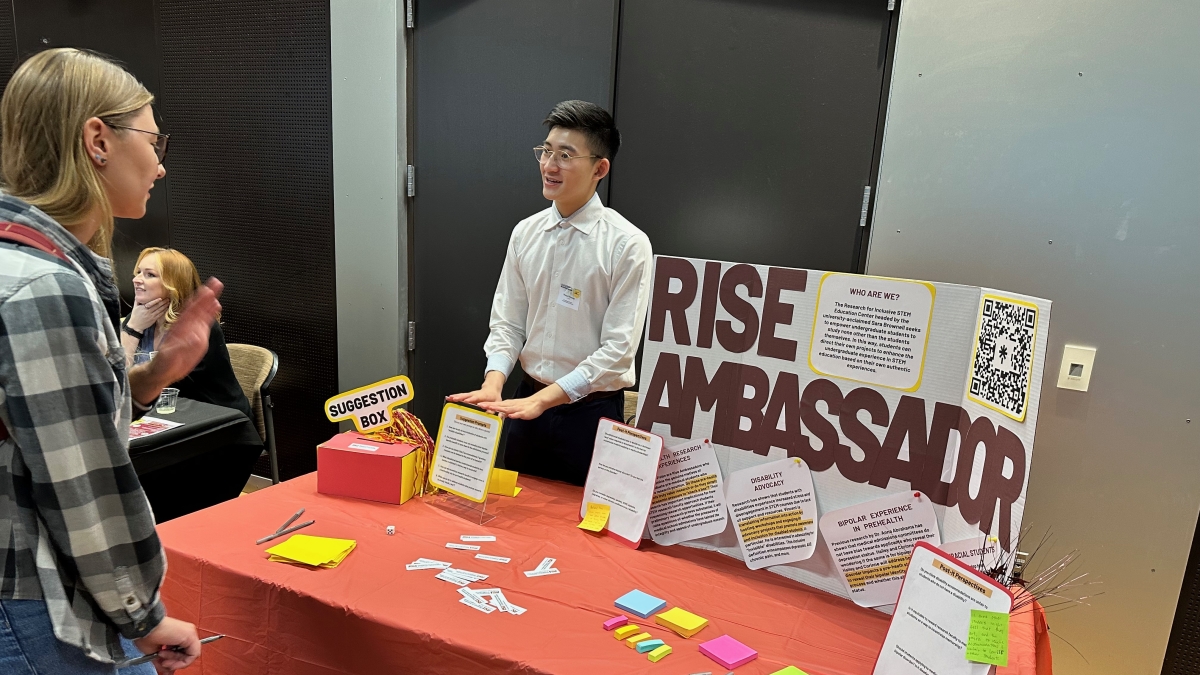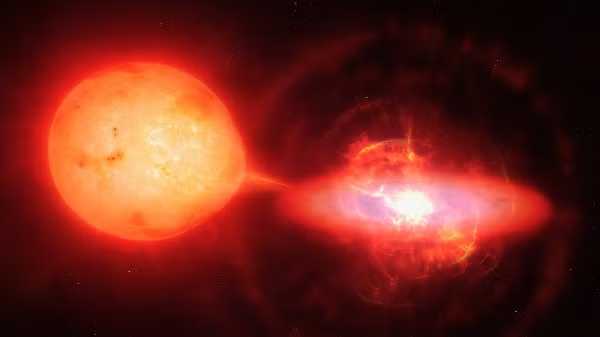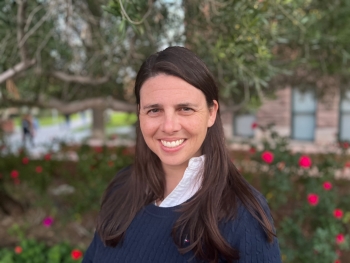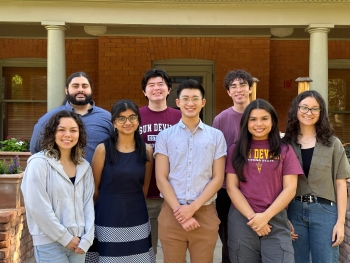Sara Brownell named among inaugural Charter Professors

Sara Brownell created the Research for Inclusive STEM Education (RISE) Ambassadors program for undergraduates who are interested in helping ASU become more inclusive, specifically in the science courses. With funding from her recent Charter Professor appointment, Brownell plans to expand the program. Photo courtesy the School of Life Sciences
Sara Brownell, President’s Professor in the School of Life Sciences and Center for Biology and Society at Arizona State University, has been named an inaugural Charter Professor in recognition of her commitment and contributions that reflect the values of ASU’s charter: inclusion and success, research of public value and assuming responsibility for the well-being of the community.
Charter Professor appointments are three-year terms providing discretionary funding to be used to complete the project outlined in the professor’s proposal.
Brownell is the founder and director of the Research for Inclusive STEM Education (RISE) Center, and recently created the brand-new RISE Ambassadors program for undergraduates who are interested in helping ASU become more inclusive, specifically in the science courses.
With the funding from her Charter Professor appointment, Brownell will “expand this program with the RISE Ambassadors beyond biology and work with a team of undergrads to make ASU science learning environments more inclusive.”
Whether it's creating resource documents that are then posted and distributed to students to make them aware of resources that could help them, translating research findings into workshops that people can go to, or getting involved in the actual education research, “it’s really intended to be a ground-up project where students come up with ideas and the direction. Students drive the mission of it based on their own interests and identities.”
Brownell created the RISE Ambassadors program “to leverage the knowledge and experiences of our amazing undergraduate students to help identify novel challenges for students of particular identities and figure out how we can change those classroom environments or the research labs to try to make them more inclusive.”
It’s often thought that science is done objectively and that identities are not relevant. “This just frankly isn't true,” Brownell says. “Our identities matter a ton in the science that we do: the questions we choose to address and how we interpret the data. We're trying to make science learning spaces more inclusive so students feel like they belong and that they are represented and can share their ideas in a safe environment so that the science itself can be better.”
Throughout her professional career, Brownell has focused on biology education research. She studies how undergraduate biology education can be improved and is mainly interested in how science spaces can be made more inclusive.
“Lately, I'm particularly interested in what we call ‘considerable stigmatized identities,’ or identities that someone essentially has to reveal in order to know that they have these identities, but there's some kind of negative stereotype often associated with it. So we've conducted research focused on students with disabilities, LGBTQ+ students, Christian students in the context of biology classrooms, students with anxiety, etc.,” Brownell says.
While she has worked with many undergraduates in the past, the RISE Ambassador program is unique in that it allows students to feel like they have the autonomy to try to make their university more inclusive. “It has been awesome to be able to see the traditional model of mentorship where the faculty knows all of the right answers to be flipped on its head here and have the students be the ones who are driving the questions and becoming the experts.”
Students are coming to Brownell with interesting ideas, and she describes her job as trying to facilitate what they want to achieve. In the program, every student picks a problem that they're interested in. For some, it's more like a traditional research project, and for others, it may be more focused on the dissemination of information.
“We're really tailoring it to the students' own unique interests and needs,” Brownell explains. “We anticipate that as we grow the program — and hopefully by the end of these three years — that we see a sustained impact on ASU that's really generated by and for the students.”
More Science and technology

Stuck at the airport and we love it #not
Airports don’t bring out the best in people.Ten years ago, Ashwin Rajadesingan was traveling and had that thought. Today, he is an assistant professor at the University of Texas at Austin, but back…

ASU in position to accelerate collaboration between space, semiconductor industries
More than 200 academic, business and government leaders in the space industry converged in Tempe March 19–20 for the third annual Arizona Space Summit, a statewide effort designed to elevate…

A spectacular celestial event: Nova explosion in Northern Crown constellation expected within 18 months
Within the next year to 18 months, stargazers around the world will witness a dazzling celestial event as a “new” star appears in the constellation Corona Borealis, also known as the Northern Crown.…



